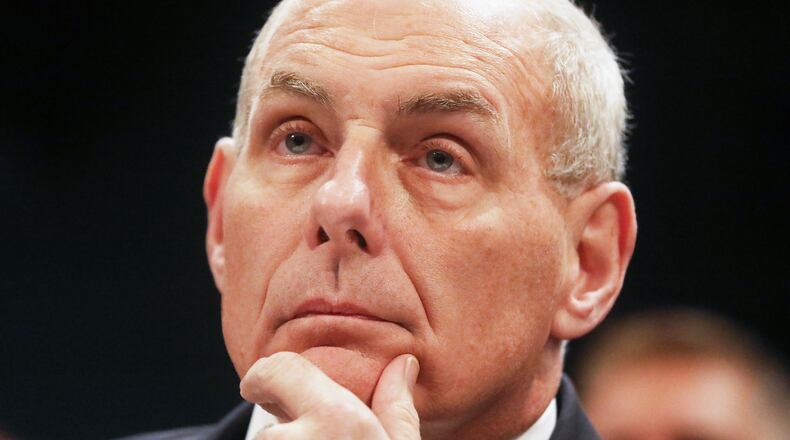People who plan to visit the United States might have to provide authorities with their social media passwords in the future, according to the head of the U.S. Department of Homeland Security.
The measure is being considered to vet people trying to get visas or refugee status in the U.S., Homeland Security Secretary John Kelly said on Tuesday at a hearing before the House Homeland Security Committee. He emphasized that the idea is just that at this point – an idea – and not necessarily going to become policy.
Kelly's comments came in response to a question from U.S. Rep. Clay Higgins, R-Louisiana, about the increased use of social media by people with links to terrorism.
"Even in countries where, as you've so carefully pointed out, we don't have vetting … those guys are on social media," Higgins said. "We can determine whether they're talking to the wrong type of people and have some bad plans for us."
Kelly said authorities are still reviewing options for vetting people from "failed states," including those named in a controversial executive order signed by President Donald Trump that temporarily restricted travel from seven Muslim-majority countries: Iran, Iraq, Syria, Yemen, Libya, Sudan and Somalia.
>> Related: Trump's immigration ban: What to know
"It's very hard to vet these people in these seven countries, because they just don't have the internal infrastructure," Kelly said.
"If someone comes in and wants to come into our country … it might be (that) not only do they bring their passports, or whatever their stories are," but they also give authorities the information to get into the password-protected websites they visit, Kelly said.
Authorities would then need time to vet the information, which Kelly said could take a week or could take a month.
>> Related: Text of Trump executive order suspending refugee admissions
"We may want to get on their social media with their passwords (to figure out) what do (they) do? What do (they) say?" Kelly said. "If they do not want to give us the information, then they do not. If they don't want to cooperate, then they don't come in."
It's not the first time authorities have considered asking visa applicants for their social media information. Top Homeland Security officials debated a similar measure under President Barack Obama, but the idea was never adopted, according to an internal memo obtained in 2015 by MSNBC.
About the Author
The Latest
Featured


